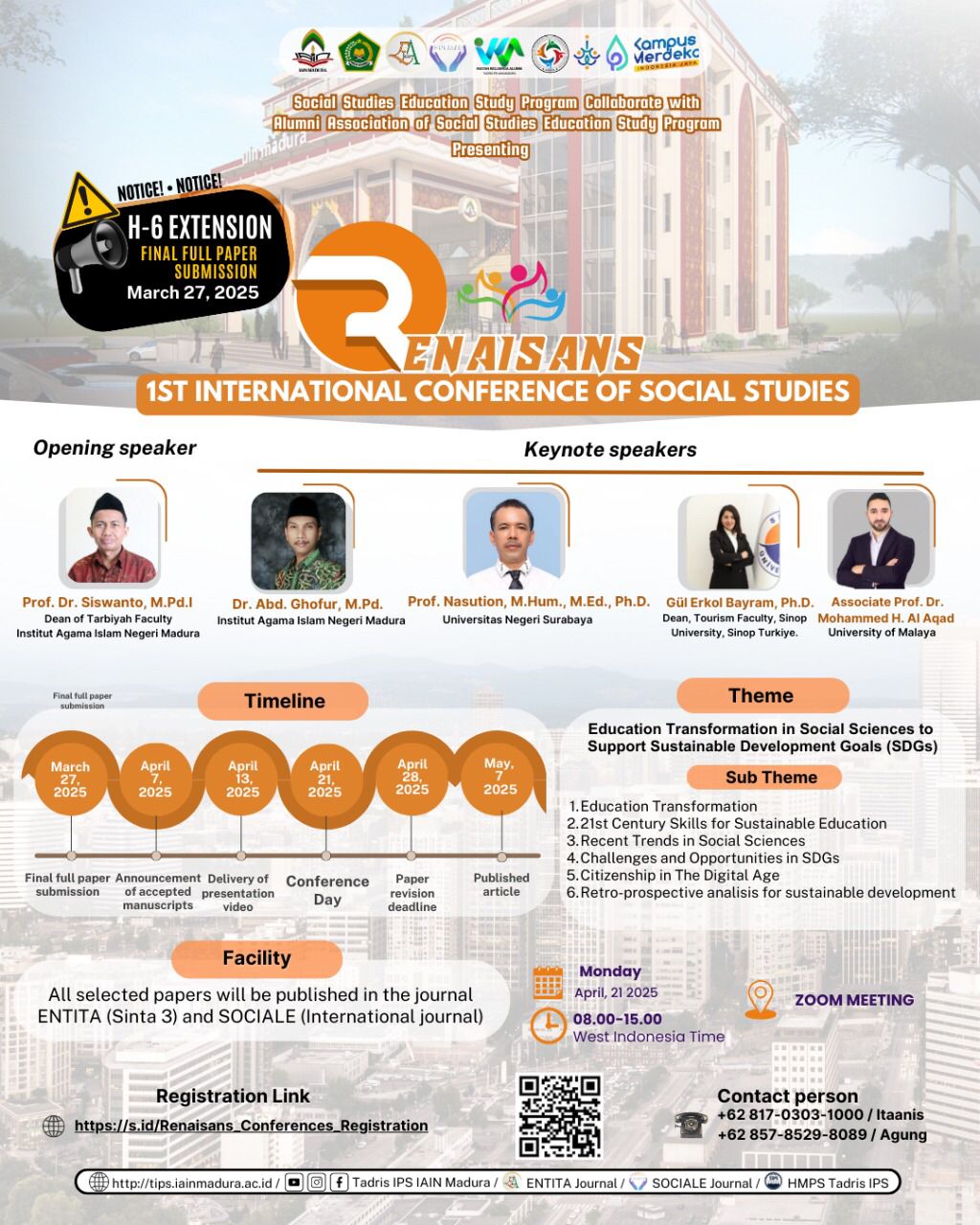From Policy to Practice: Addressing SDG Challenges and Opportunities Through Social Sciences
 Abstract views: 0
,
Abstract views: 0
,
 PDF downloads: 0
PDF downloads: 0
Abstract
The achievement of Sustainable Development Goals (SDGs) presents various kinds of challenges and opportunities, especially in the context of social sciences. The purpose of this study is to examine the challenges and opportunities associated with implementing the SDGs from a social science approach. By analyzing relevant literature from 2020 to 2025, this study observes significant challenges such as policy inconsistencies, lack of inclusivity, and limited resources that obstruct effective implementation. In contrast, opportunities are identified in the form of interdisciplinary cooperation, technology developments, and the increasing focus on inclusive and equitable education. The findings show that social sciences play an important role in filling the gap between policy frameworks and practical applications, presenting innovative solutions to address complex societal issues. Furthermore, this study highlights the necessity of developing critical thinking, collaborative efforts, and adaptable solutions in order to overcome current obstacles and maximaze the potential of SDGs. Practical recommendations are provided to improve the efficiency of SDG-related projects which highlight the need for collaborative strategies and dynamic policy frameworks.
Keywords: Sustainable Development Goals (SDGs), Social Sciences, Challenges, Opportunities, Interdisciplinary Collaboration
Downloads
References
Leach, M., Raworth, K., & Rockstrom, J. (2013). Between social and planetary boundaries: Navigating pathways in the safe and just space for humanity. In World Social Science Report 2013 (pp. 84–89). OECD. https://doi.org/10.1787/9789264203419-10-en
Bexell, M., & Jönsson, K. (2022). Realizing the 2030 Agenda for sustainable development – engaging national parliaments? Policy Studies, 43(4), 621–639. https://doi.org/10.1080/01442872.2020.1803255
Der Tambile, E., Ramachandran, V. S., Rajendrakumar, S., Remesh, M., Ramaswamy, J., & Ramesh, M. V. (2024). Rural livelihoods sustainability in South Asia and Africa: a systematic review with bibliometric analysis. Discover Sustainability, 5(1), 410. https://doi.org/10.1007/s43621-024-00651-2
Filho, W. L., Sierra, J., Price, E., Eustachio, J. H. P. P., Novikau, A., Kirrane, M., Dinis, M. A. P., & Salvia, A. L. (2024). The role of universities in accelerating the sustainable development goals in Europe. Scientific Reports, 14(1), 15464. https://doi.org/10.1038/s41598-024-65820-9
Kroll, C., Warchold, A., & Pradhan, P. (2019). Sustainable Development Goals (SDGs): Are we successful in turning trade-offs into synergies? Palgrave Communications, 5(1), 140. https://doi.org/10.1057/s41599-019-0335-5
Mandikonza, C. (2019). Integrating indigenous knowledge practices as context and concepts for the learning of curriculum science: A methodological exploration. Southern African Journal of Environmental Education, 35(1). https://doi.org/10.4314/sajee.v35i1.13
Oruç, E., Uzunöz, M., & Karadoğan, N. (2017). Rural Women’s Participation of Local Development: A Case of the Women Shareholders of Vakifli Development Cooperative. Asian Journal of Agricultural Extension, Economics & Sociology, 17(2), 1–12. https://doi.org/10.9734/AJAEES/2017/33435
Sachs, J., Kroll, C., Lafortune, G., Fuller, G., & Woelm, F. (2022). Sustainable Development Report 2022. In Sustainable Development Report 2022. Cambridge University Press. https://doi.org/10.1017/9781009210058
Sumarga, E., & Hein, L. (2014). Mapping Ecosystem Services for Land Use Planning, the Case of Central Kalimantan. Environmental Management, 54(1), 84–97. https://doi.org/10.1007/s00267-014-0282-2
UNESCO. (2021). Reimagining our futures together: a new social contract for education. UNESCO. https://doi.org/10.54675/ASRB4722
Weitz, N., Carlsen, H., Nilsson, M., & Skånberg, K. (2018). Towards systemic and contextual priority setting for implementing the 2030 Agenda. Sustainability Science, 13(2), 531–548. https://doi.org/10.1007/s11625-017-0470-0
World Bank. (2020). World Development Report 2021.
Copyright (c) 2025 Entita: Jurnal Pendidikan Ilmu Pengetahuan Sosial dan Ilmu-Ilmu Sosial

This work is licensed under a Creative Commons Attribution-NonCommercial 4.0 International License.
ENTITA: Jurnal Pendidikan Ilmu Pengetahuan Sosial dan Ilmu-Ilmu Sosial operates an Open Access policy under a Creative Commons Non-Commercial 4.0 International license. Authors who publish with this journal agree to the following terms:
- The copyright of the received article once accepted for publication shall be assigned to the journal as the publisher with licensed under a

- Journal is able to enter into separate, additional contractual arrangements for the non-exclusive distribution of the journal's published version of the work (e.g., post it to an institutional repository or publish it in a book), with an acknowledgement of its initial publication in this journal.
- Journal is permitted and encouraged to post their work online (e.g., in institutional repositories or on their website) prior to and during the submission process, as it can lead to productive exchanges, as well as earlier and greater citation of published work (see The Effect of Open Access).
- Here is Copyright Transfer Form that author can download and send to OJS during submission.

















